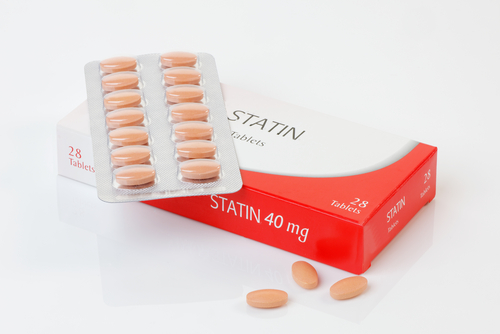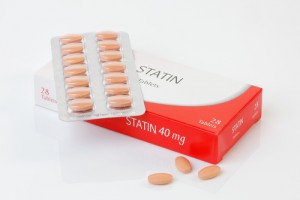Statins Improve Efficacy, Safety Profile of Imatinib for PAH

 Combining two drug therapies, statins and imatinib, may be more beneficial for pulmonary hypertension management than using either alone. The laboratory of Daria Orszulak-Michalak in Poland investigated co-administration of rosuvastatin or simvastatin with imatinib in rats with experimentally-induced pulmonary hypertension and found a benefit in reducing disease severity.
Combining two drug therapies, statins and imatinib, may be more beneficial for pulmonary hypertension management than using either alone. The laboratory of Daria Orszulak-Michalak in Poland investigated co-administration of rosuvastatin or simvastatin with imatinib in rats with experimentally-induced pulmonary hypertension and found a benefit in reducing disease severity.
Both drug combinations yielded potent results, as determined by lower right ventricular hypertrophy in rats treated with both drugs. The higher dose of imanitib, 50 mg/kg, was more effective than the lower dose, 20 mg/kg.
“Statins may intensify the beneficial effects of imatinib in pulmonary arterial hypertension, which may be due to the additional influence of statin on the decrease of platelet-derived growth factor (PDGF)-induced effects,” wrote the authors in the study, “HMG-COA Reductase Inhibitors: An Opportunity for the Improvement of Imatinib Safety. An Experimental Study in Rat Pulmonary Hypertension.”
[adrotate group=”4″]
The PDGF receptor inhibitor imatinib has been previously shown to treat pulmonary hypertension in rats. PDGF is involved in cell proliferation, which can lead to an occluded pulmonary artery if thickening of the arterial wall occurs, which could then lead to right ventricle overload from trying to pump blood at a higher pressure to pass through the occlusion.
One clinical trial, IMPRES, evaluated 24 weeks of imatinib treatment in patients with PAH who had not responded to other attempts at treatment. During the course of treatment, patients receiving imatinib showed a placebo-corrected treatment-effect on six-minute walk distance of 32 meters. When patients were given the option to continue treatment in an open-label long-term extension study, the positive effect lasted, and pulmonary vascular resistance decreased significantly.
[adrotate group=”3″]
The study notes that the long-term safety of imatinib was questioned, as more serious adverse events and discontinuations occurred in the treatment group than in the placebo group. However, a phase 2 trial of imatinib in PAH patients demonstrated safety, tolerability, and efficacy of treatment.
The study at hand suggests a way of decreasing the chance of adverse events related to imatinib. Since combination therapy of statins and imatinib is more effective than imatinib alone, the total dose may be decreased, lessening the drug burden on patients. “These properties allow the dose of imatinib used in PAH treatments to be reduced and thereby might improve its safety profile,” concluded the authors.







